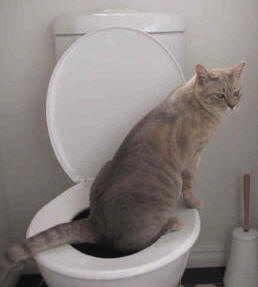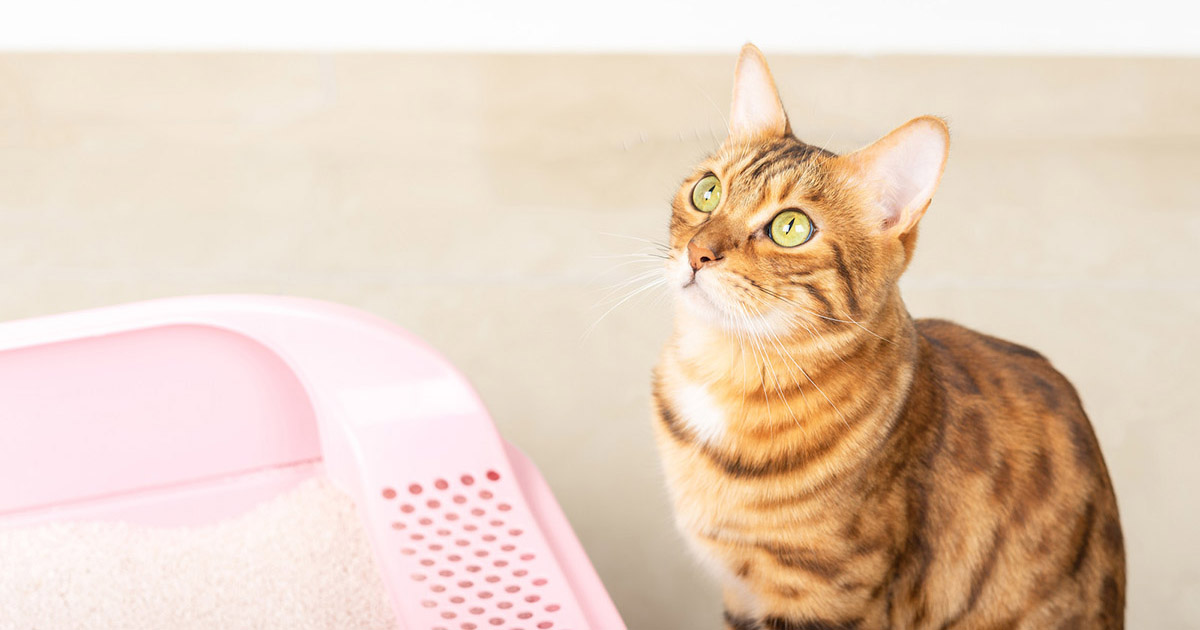Why You Shouldn't Flush Cat Poop Down Your Toilet - Maintain Your Plumbing System
Why You Shouldn't Flush Cat Poop Down Your Toilet - Maintain Your Plumbing System
Blog Article
What're your concepts about How to Dispose of Cat Poop and Litter Without Plastic Bags?

Intro
As cat proprietors, it's necessary to bear in mind how we take care of our feline pals' waste. While it might seem hassle-free to flush feline poop down the bathroom, this method can have damaging repercussions for both the atmosphere and human wellness.
Ecological Impact
Flushing feline poop introduces hazardous pathogens and parasites into the water supply, posturing a substantial danger to marine ecological communities. These impurities can adversely affect marine life and concession water top quality.
Wellness Risks
Along with ecological issues, flushing pet cat waste can likewise pose wellness threats to people. Cat feces might have Toxoplasma gondii, a bloodsucker that can trigger toxoplasmosis-- a potentially extreme health problem, particularly for pregnant females and people with weakened body immune systems.
Alternatives to Flushing
Thankfully, there are more secure and a lot more accountable means to dispose of feline poop. Consider the following options:
1. Scoop and Dispose in Trash
The most typical approach of dealing with pet cat poop is to scoop it into a naturally degradable bag and toss it in the trash. Make certain to use a specialized trash scoop and take care of the waste quickly.
2. Usage Biodegradable Litter
Go with naturally degradable feline clutter made from materials such as corn or wheat. These clutters are eco-friendly and can be safely gotten rid of in the garbage.
3. Bury in the Yard
If you have a yard, think about hiding pet cat waste in a designated area away from veggie gardens and water sources. Make sure to dig deep sufficient to stop contamination of groundwater.
4. Mount a Pet Waste Disposal System
Invest in an animal garbage disposal system especially made for cat waste. These systems use enzymes to break down the waste, decreasing odor and environmental impact.
Verdict
Accountable family pet ownership expands past giving food and sanctuary-- it also entails proper waste monitoring. By refraining from flushing cat poop down the commode and opting for different disposal approaches, we can decrease our ecological impact and protect human health.
Why Can’t I Flush Cat Poop?
It Spreads a Parasite
Cats are frequently infected with a parasite called toxoplasma gondii. The parasite causes an infection called toxoplasmosis. It is usually harmless to cats. The parasite only uses cat poop as a host for its eggs. Otherwise, the cat’s immune system usually keeps the infection at low enough levels to maintain its own health. But it does not stop the develop of eggs. These eggs are tiny and surprisingly tough. They may survive for a year before they begin to grow. But that’s the problem.
Our wastewater system is not designed to deal with toxoplasmosis eggs. Instead, most eggs will flush from your toilet into sewers and wastewater management plants. After the sewage is treated for many other harmful things in it, it is typically released into local rivers, lakes, or oceans. Here, the toxoplasmosis eggs can find new hosts, including starfish, crabs, otters, and many other wildlife. For many, this is a significant risk to their health. Toxoplasmosis can also end up infecting water sources that are important for agriculture, which means our deer, pigs, and sheep can get infected too.
Is There Risk to Humans?
There can be a risk to human life from flushing cat poop down the toilet. If you do so, the parasites from your cat’s poop can end up in shellfish, game animals, or livestock. If this meat is then served raw or undercooked, the people who eat it can get sick.
In fact, according to the CDC, 40 million people in the United States are infected with toxoplasma gondii. They get it from exposure to infected seafood, or from some kind of cat poop contamination, like drinking from a stream that is contaminated or touching anything that has come into contact with cat poop. That includes just cleaning a cat litter box.
Most people who get infected with these parasites will not develop any symptoms. However, for pregnant women or for those with compromised immune systems, the parasite can cause severe health problems.
How to Handle Cat Poop
The best way to handle cat poop is actually to clean the box more often. The eggs that the parasite sheds will not become active until one to five days after the cat poops. That means that if you clean daily, you’re much less likely to come into direct contact with infectious eggs.
That said, always dispose of cat poop in the garbage and not down the toilet. Wash your hands before and after you clean the litter box, and bring the bag of poop right outside to your garbage bins.
https://trenchlesssolutionsusa.com/why-cant-i-flush-cat-poop/

We hope you liked our piece about Can You Flush Cat Poo or Litter Down the Toilet?. Thank you so much for taking a few minutes to read our posting. Do you know about somebody else who is interested by the subject? Be sure promote it. I am grateful for your time. Visit us again soon.
This Resource Report this page